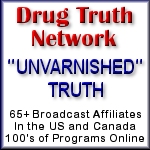News aggregator
Aurora partners with Leafio to expand medical cannabis reach in Australia - Investing.com
Categories: News Feeds
Heavy drinkers cut alcohol use by nearly 30% after adopting one new habit, study finds - Fox News
Categories: News Feeds
Heavy drinkers cut alcohol use by nearly 30% after adopting one new habit, study finds - Fox News
Categories: News Feeds
Village Farms International Reaffirms its Commitment to the Texas Cannabis Industry - Yahoo Finance
Categories: News Feeds
How cannabis brands can avoid tokenism and find cultural competency - MJBizDaily
Categories: News Feeds
What were some of the top cannabis stocks in 2025? | 2025-12-02 | Investing News - Stockhouse
Categories: News Feeds
Cannabis farm worth £2m uncovered in police raid - Yahoo News Canada
Cannabis farm worth £2m uncovered in police raid Yahoo News Canada
Categories: News Feeds
'The scale and sophistication of this cannabis farm highlight the lengths criminals will go to'
Categories: News Feeds
Cannabis use linked to dangerous 'scromiting' | Tap to know more | Inshorts - Inshorts
Categories: News Feeds
States fail to require adequate cannabis product safety warnings - statnews.com
Categories: News Feeds
Virginia Marijuana Commission Unveils Plan To Legalize Adult-Use Sales Under New Pro-Reform Governor - Marijuana Moment
Virginia Marijuana Commission Unveils Plan To Legalize Adult-Use Sales Under New Pro-Reform Governor Marijuana Moment
Categories: News Feeds
Wayne State begins groundbreaking cannabis studies as potential therapy for veterans with PTSD and depression - Today@Wayne
Categories: News Feeds
‘Scromiting,’ a bizarre condition linked to chronic marijuana use, is on the rise - CNN
Categories: News Feeds
Rhode Island Health Department trying to discourage risky cannabis use - Ocean State Media
Rhode Island Health Department trying to discourage risky cannabis use Ocean State Media
Categories: News Feeds
‘I begged them to save me’: Anupam Kher recalls his frightening marijuana and bhaang experience; how it disrupts perception and triggers fear in users - The Indian Express
‘I begged them to save me’: Anupam Kher recalls his frightening marijuana and bhaang experience; how it disrupts perception and triggers fear in users The Indian Express
Categories: News Feeds


